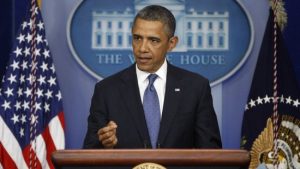
As I recall, it was an afternoon in February a few years ago. One of my journalism students came to me with a cell phone in his hands – you know the pose, with head bowed, eyes mesmerized, phone illuminating his face – and a look of incredulity. He looked up at me and announced the news.
“It says here Gordon Lightfoot is dead,” he said.
“What?” I said, then added with a tone of say it ain’t so in my voice “No.” Then, I asked him where he was reading such news.
He said it was trending on Twitter from a source in Ottawa. He knew the next question I’d ask him was whether anybody credible had verified the news. And he told me it had also appeared on a number of websites. Of course, it was one of those unattributed stories that was entirely false, but it had gone viral (including publication on the Vancouver Sun’s website for a time) simply because the name Gordon Lightfoot was included. And within a quarter hour the whole country, the whole folk music world was going crazy. But none of the rumours – that Lightfoot had died the night before or that Ronnie Hawkins was lamenting his death – was true.

It was the worst case of fake news to hit this country in 2010. But that was only the beginning. In Vancouver, satirist John Egan has launched The Burrard Street Journal, which has attracted readers because it publishes send-ups of news events. Among a number of so-called news stories, Egan claimed on his site that President Barack Obama would move to Canada if Donald Trump won the Nov. 8 federal election in the United States. Egan knew irregular visitors to his site would react to the “news.” Fortunately, for those who look closely enough, TBSJ readers quickly discover the site’s disclaimer:
“The Burrard Street Journal is a sometimes Canadian satire, parody and comedy news website based in Vancouver, B.C.,” it says at the bottom of the website. “All articles, videos and images are fictitious and occasionally intended to be humourous.” Except that not everybody in a world demanding instant gratification 24/7 takes the time to read the bottom of the website.

Taking the cake for shameless fakery, however, is the emergence of the website Planet Free Will, and in particular a story fabricated by Stefanie MacWilliams, whom the Toronto Star located and described as a “stay-at-home mother and contributor” to the site. In her story, MacWilliams claimed that “a politically connected paedophile ring (was) housed at the Comet Ping Pong pizza parlour,” in Washington, D.C.
That’s the place where – following the publication of MacWilliams’ fake article – Edgar Welch was arrested for firing his rifle inside the pizzeria because he believed the threat of the ring was true. When confronted over the impact of her fake story, MacWilliams told the Star she was insulted, dismissing the criticism as blaming her as the latest “conspiracy theorist.”
So, how does a world hell-bent on delivering news faster and first, nip fake news in the bud? Well, Google has recently suggested it would ban websites that host fake news from employing its online advertising service. That’s a start, hitting fakers in the pocketbook. And Mark Zuckerberg, Facebook’s chief executive, has said he will shortly outline ways that his firm can “flag suspicious content.”
If Zuckerberg is true to his word, however, he’ll have to find a way to catch up to a couple of fake news artists in Tbilisi, Georgia. In the former Soviet city, Beqa Latsabidze told the New York Times he was a computer science student interested in making money from Americans’ incredible appetite for partisan political news. Initially, in the days before the U.S. federal election last month, he and his younger brother created a website posting stories that raved about Hillary Clinton. When that didn’t drive any traffic to their site, the two decided to write promotional stories about Donald Trump. They mixed real with completely fake stories including some with an anti-Clinton spin.
“I don’t call it fake news,” Latsabidze told the New York Times. He contends that the service just gives readers what they want.

I’m afraid he’s partly right. It’s not the public’s responsibility to weed these fakers out. That’s the job of journalists, editors and publishers who care to practise honest reporting in the first place. If fake news is getting out of hand, it’s we in the media who are not being proactive enough in reviewing our own profession.
If we don’t expose the purveyors of false information by fact-checking so-called news, by challenging anonymous sources and calling out such organizations as Planet Free Will, and even social media giants Twitter and Facebook, if/when they don’t police themselves, we cannot whine about the sad and sometimes tragic consequences.
Shakespeare was right, when Cassius said, “The fault … is not in our stars, but in ourselves.”